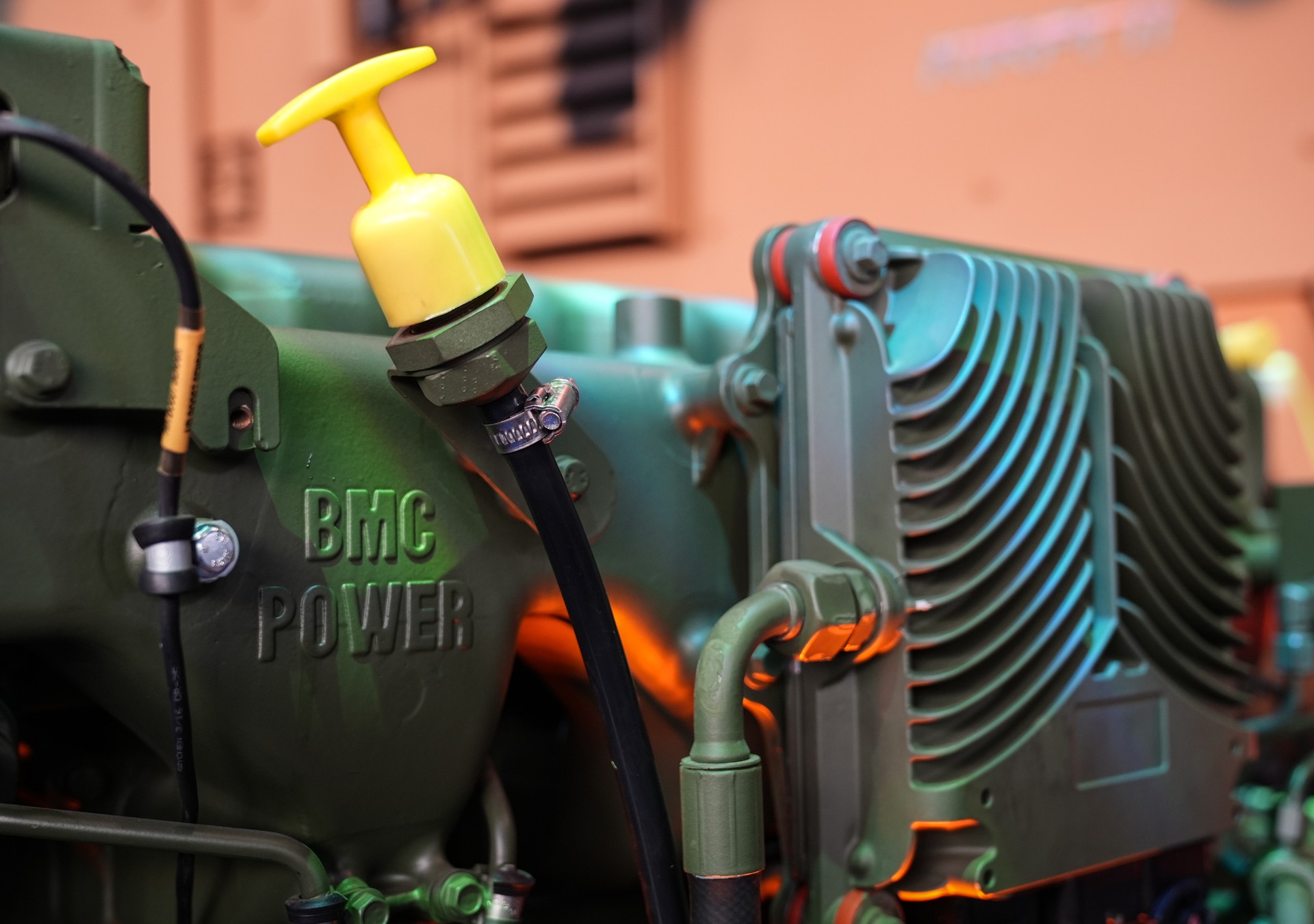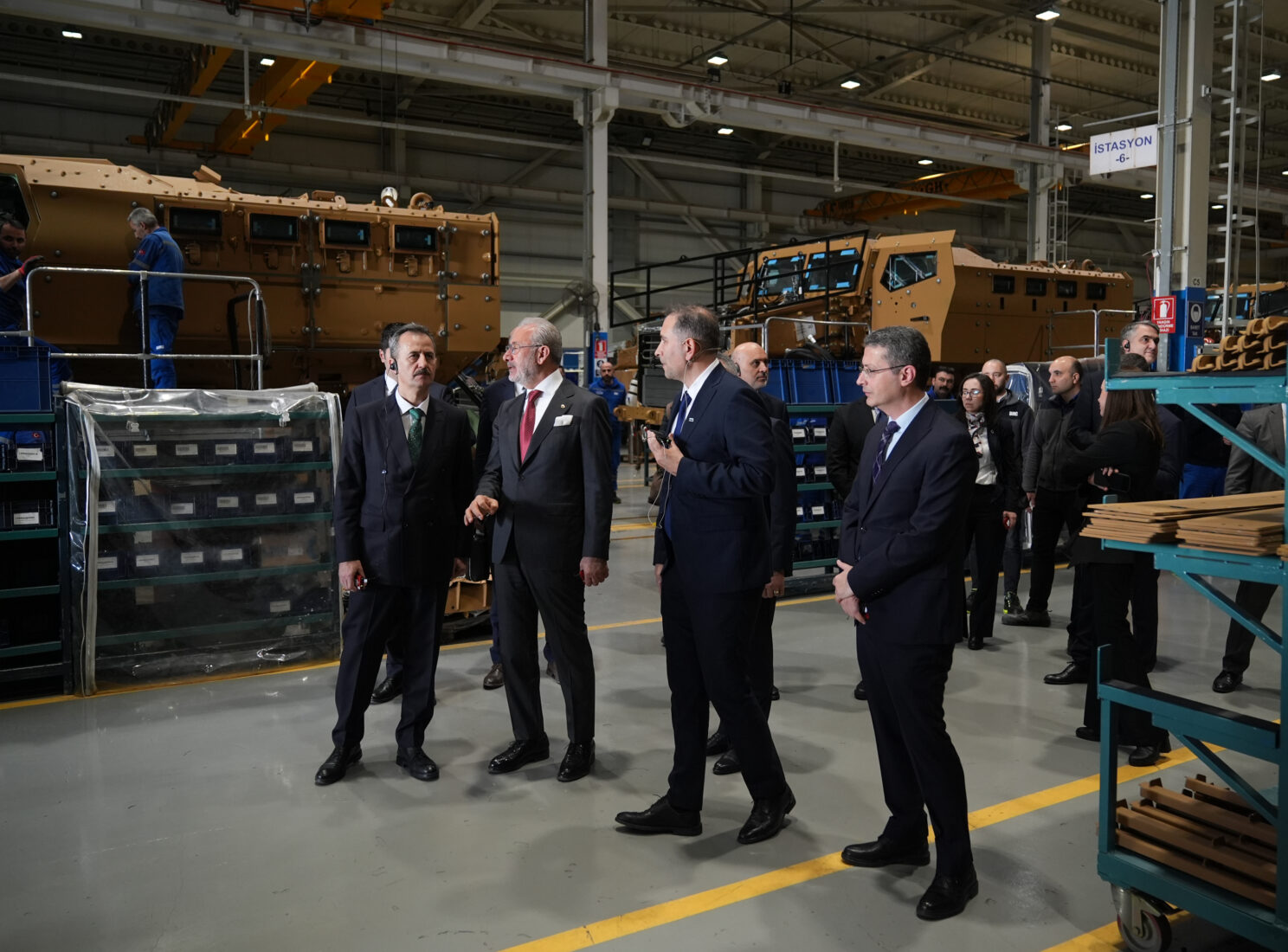
In a ceremony held at BMC's facilities in Pinarbasi, Izmir, Türkiye’s first series of locally manufactured motorized tactical wheeled armored vehicles were delivered to the Turkish Land Forces Command and the General Directorate of Gendarmerie.
The vehicles, designed by Turkish engineers at BMC under the coordination of the Presidency of Defense Industry, marked a significant milestone in the country's defense industry.
The event, attended by key officials including Prof. Dr. Haluk Gorgun, President of the Defense Industry Agency, saw the delivery of 50 Vuran vehicles to the Land Forces Command, 40 Vuran vehicles to the Gendarmerie, and 10 Kirpi vehicles to the Land Forces Command inventory.
"We are proud to deliver locally produced armored vehicles," said Gorgun. "Not only do we meet the needs of our esteemed security forces and armed forces, but we are also doing our part to assist allied nations and friends in fulfilling their defense needs."
Gorgun emphasized Türkiye's strong technological base in the defense sector, pointing out that last year, the country’s defense industry reached $7.1 billion in exports, surpassing its target of $6.5 billion by 29%. Over the last two years, Turkish defense companies signed export contracts worth a total of $20 billion, showcasing the nation's growing role as a global player in defense technology.
Defense industry expands with new developments
Looking ahead, Gorgun provided a glimpse into the Defense Industry Agency’s upcoming projects for 2025. Among these is the serial production of Türkiye's main battle tank, which is expected to be delivered to the army by the end of 2025.

Additionally, the agency plans to complete deliveries of armored amphibious assault vehicles and finalize contracts for new generations of 6x6 and 8x8 vehicles. Other planned initiatives include the completion of various configurations of special-purpose armored vehicles and the delivery of vehicles undergoing modernization.
Strategic importance of tactical armored vehicles
In his address, General Selcuk Bayraktaroglu, Commander of the Turkish Land Forces, highlighted the importance of tactical wheeled armored vehicles in modern combat. These vehicles, known for their speed, armor protection, and reconnaissance capabilities, have become essential components in military operations, particularly in regions such as northern Iraq and Syria.
Since 2011, the Turkish military has steadily increased its inventory of armored vehicles, including the Kirpi model. Bayraktaroglu noted that Turkish engineers have continuously improved these vehicles, integrating new systems and capabilities to address evolving military needs. "Today, with the addition of these 100 locally produced vehicles, we are further enhancing the operational capabilities of our forces," he said.
General Ali Cardakci, Commander of the Gendarmerie, praised the delivery of these vehicles as an important step in the ongoing modernization of Türkiye's defense capabilities. He emphasized the strategic importance of Türkiye’s focus on local production and self-sufficiency, crediting President Recep Tayyip Erdogan's leadership for the country’s technological advances in defense. “This delivery represents a concrete reflection of the vision that has shaped our modernization efforts,” he said.
Leap toward greater self-sufficiency
Fuat Tosyali, Chairman of the Board of BMC, expressed pride in the company’s role in achieving this important milestone. "With these locally produced vehicles, we have reached a localization rate of 95% in the Kirpi and Vuran models, including the engine," Tosyali said. "This delivery is a critical step towards increasing the country’s defense industry localization and reducing dependency on foreign imports."